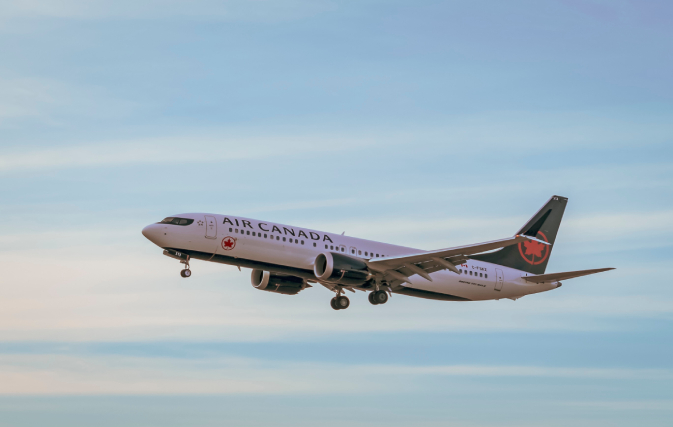MONTREAL — Air Canada is facing a tougher third quarter due to the grounding of the Boeing 737 Max, with the airline announcing it will scrub the plane from its schedules until at least Jan. 8 and see capacity drop in one of its busiest travel periods.
“The 737 Max grounding will be felt more acutely in our very busy summer period,” chief executive Calin Rovinescu said on a conference call with investors Tuesday.
“Already we’re using our fleet as efficiently as is possible with the maximum number of hours per day…but it’ll be more challenging,” Rovinescu said.
Despite the forecasted 2% year-over-year decline in capacity – the number of passengers it can fly – the company expects to boost adjusted core earnings by 5% next quarter. Originally the carrier expected to fly 3% more passengers.
The new forecast comes as Air Canada reported adjusted earnings that soared above analyst estimates as it contained costs and boosted revenue nearly 10% to a second-quarter record of $4.76 billion.
The strong quarter and upbeat predictions pushed the airline’s share price up nearly 4% to close at a historic high of $46.69 Tuesday.
Air Canada has 24 Max 8 aircraft – comprising about 20% of its narrow-body fleet and typically carrying about 11,000 passengers per day – which it used mainly for domestic and U.S. routes. Deprived of the fuel-efficient planes, Air Canada still managed to cover 97% of its flights but costs rose due to lower fuel efficiency and leases of Airbus A320s and Embraer 190s from other carriers.
Prior to the grounding in mid-March, the company was expecting 12 more Max 8s by the end of June and another 14 in the first half of 2020, none of which have arrived due to concerns with the aircraft’s software and sensors following two fatal crashes in Indonesia and Ethiopia that killed 346 people, including 18 Canadians.
“Their delivery schedule and our Max fleet plan are in a complete state of flux,” said chief financial officer Michael Rousseau.
The airline has not hired pilots or cabin crews for the dozen missing Max 8s, nor is it planning to hire for the 14 other planes “until we have clarity,” he said.
“As a result of this and other operational factors, it will take up to a year from the time when a decision is made to integrate them into our fleet after the un-grounding for all 50 planes to fly,” Rousseau said, meaning the impact will likely be felt all through next year.
The two-dozen Max 8s now in Air Canada’s fleet could return to service within two to three months of airspace bans being lifted, he added.
Analyst Walter Spracklin of RBC Dominion Securities said that “tighter capacity is the silver lining of the MAX impact, and should bode well for yields” – the average fare a passenger pays per mile.
Analyst Cameron Doerksen of National Bank of Canada said in an investor note the 737 Max grounding will hinder capacity growth and raise expenses for Canadian airlines this year, but that lower jet fuel costs and a stronger Canadian dollar may help offset those headwinds.
The CEO also addressed Air Canada’s definitive agreement to buy tour operator Transat A.T. Inc., which owns Air Transat, for $520 million or $13 per share.
Rovinescu sought to temper resistance to the deal from major Transat shareholders who feel the price is too low, saying the transaction will benefit all stakeholders. “This includes Transat shareholders, who will receive a significant premium from where their shares were trading before April,” he said.
Shareholders are scheduled to vote Aug. 23 on the deal, which received board approval last month but continues to face legal and regulatory scrutiny.
Air Canada reported Tuesday that its adjusted earnings were 88 cents per diluted share during the three months ended June 30, up from 47 cents a year earlier.
Analysts had estimated adjusted earnings of 76 cents per share and $4.71 billion of revenue, according to financial markets data firm Refinitiv.
Net profit was $343 million, or $1.26 per diluted share, a turnaround from the loss of $102 million or 37 cents per share that the airline experienced during the comparable period last year.
